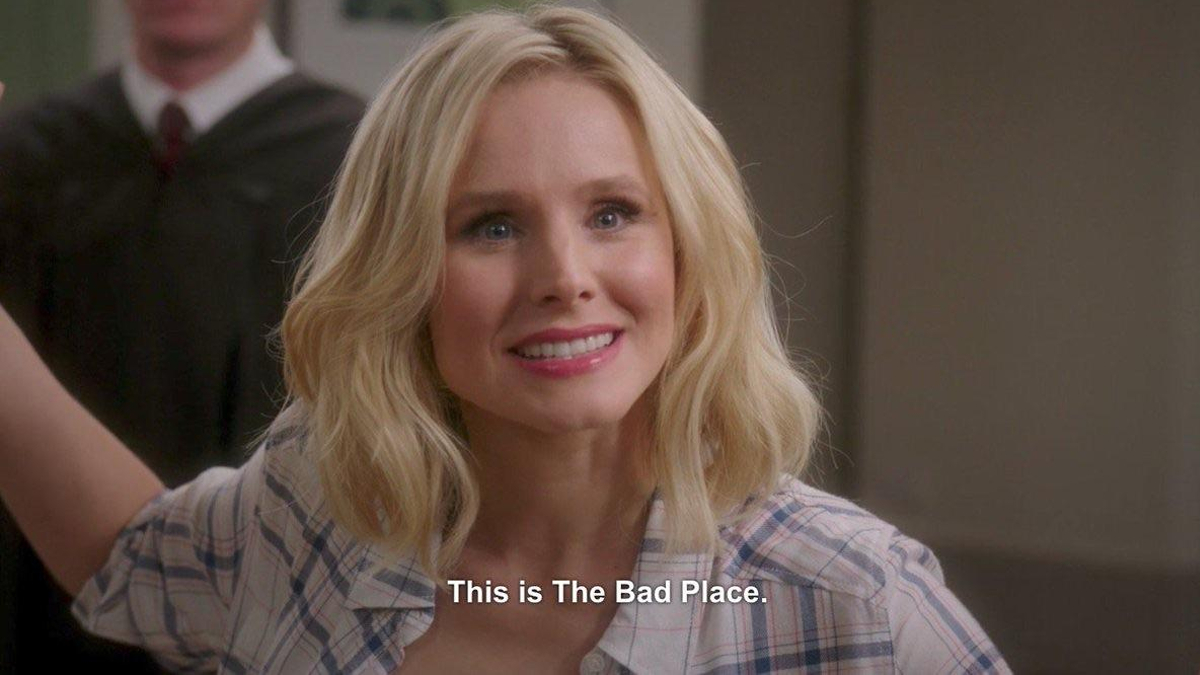I Saw the TV Glow and it terrified me.
But in its purple-pink girlypop glow, I found myself.

Previously on “The Pink Opaque”

I Saw the TV Glow is a horror film, but not really. There are no monsters, nor any scares. It isn’t gory or especially violent. It’s a horror film, except it isn’t scary.
Well, it isn’t scary in the traditional sense. Taken literally, TV Glow would appear to be a bizarre concoction of nonsensical plot points and bewildering performances. But this isn’t the sort of film one watches while assuming a vegetative state; on the contrary, it’s a film that demands to be read. Within its text lies a poignant allegory for realizing one’s identity and a haunting portent of what happens when one chooses to ignore it.
This film terrified me. It shook me to my core. It was as if I were witnessing a prophecy of my own life play out on the screen. TV Glow looked me in the eye and said, “Don’t look away. This is important. This could be you if you keep down this path.” I didn’t like what I saw, but that was the point.
I know it’s scary. That’s part of it.1
I saw myself in Owen’s meekness, his awkward stumbling through life, and his horror at catching glimpses of his true self.
I observed how, like me, Owen’s high school walls formed a prison, yet provided safe haven from home; his home’s walls formed another—different—prison, yet provided safe haven from school. He was stuck in a paradoxical, draining loop that was all-too-familiar: always relieved to leave one’s current locale but always dreading the next, never able to verbalize that uneasiness.
I hung on Maddy’s every word as she waxed poetic in the planetarium. She was talking about me. She was talking to me. And she looked good doing it, too. Confident. Powerful. Things I wasn’t.
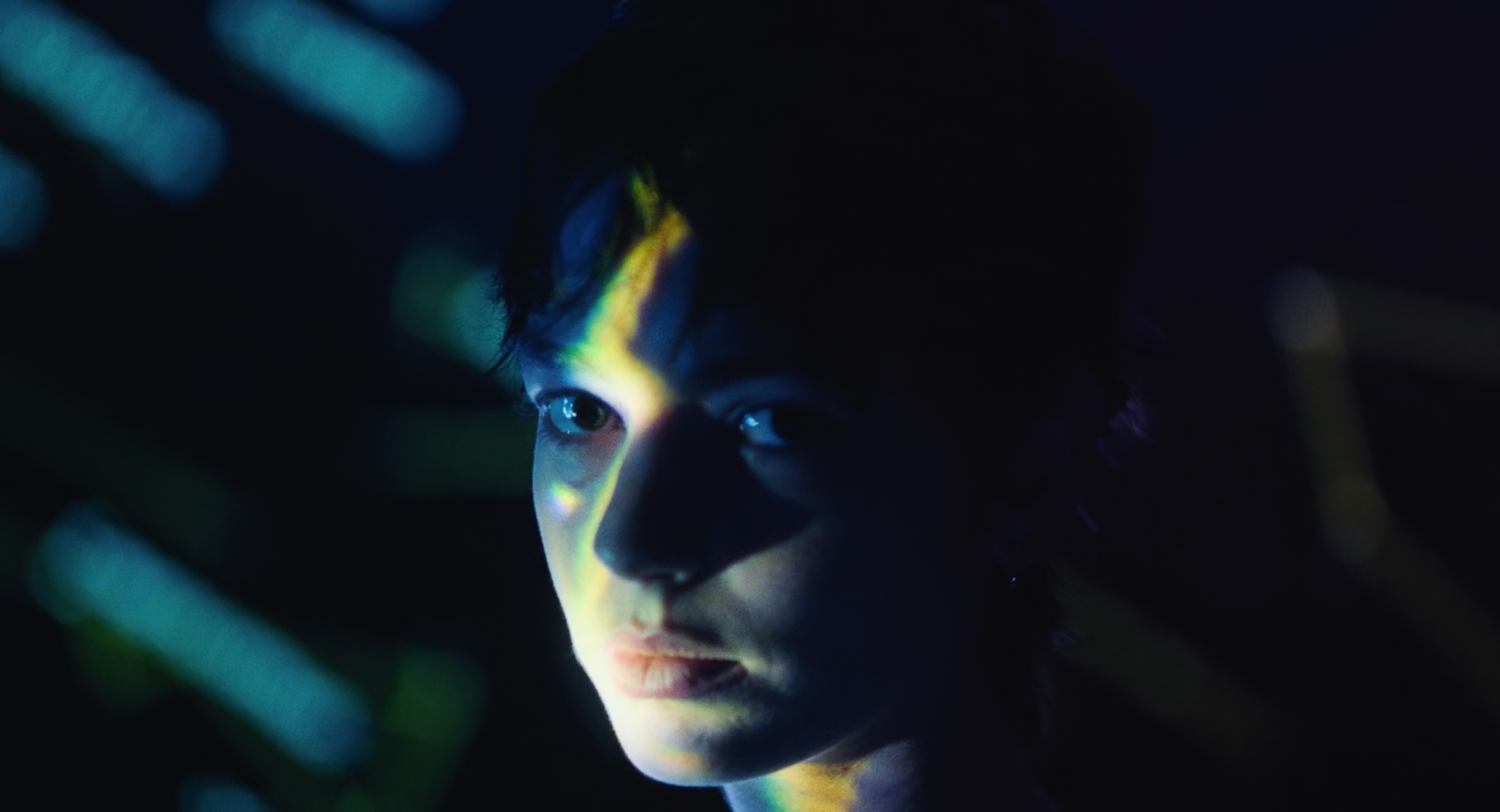
I witnessed Owen wither as a result of ignoring Maddy’s pleadings. I watched as his movements slowed to a crawl and his breathing became labored.
Then, a scream.
A cry for help.
Silence.
Sorry about that before.
Sorry about before.
Just a new medication I’m on.
Sorry.
I’m sorry about before.
I’m sorry about that before.
Sorry.
I’m sorry.
Cut to black. Roll credits.

I sat frozen in my seat. Do I cry? Scream? Smile? A million emotions swirled within me, but I didn’t know which I was supposed to be paying attention to. All of them? Just a few? Only one?
I had felt a similar sensation once before. A couple of years ago, when I began to become aware of my Autistic identity, I felt an overwhelming mix of emotions: fear of being labelled Autistic, joy at discovering a key part of myself, sorrow at all the time lost. The feelings I felt in this moment were similar, but one emotion was much more prominent this time: pure, unbridled terror.
Act One: Sucking down the Luna Juice
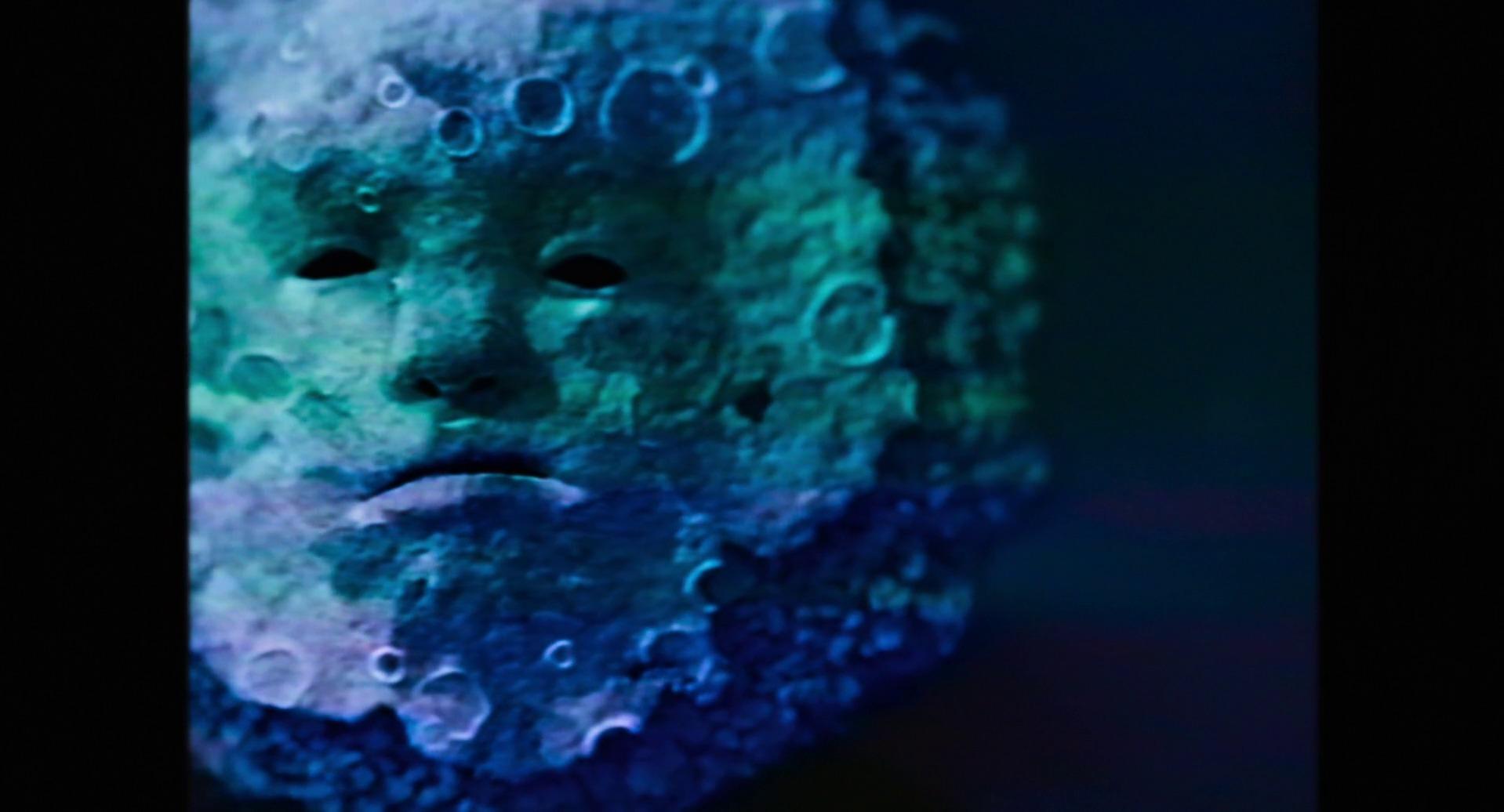
Sometime during high school, there was a period in which I had difficulty discerning between dream and reality. Each night, I would relive the day I had just experienced but with subtle details changed. I started to reference things that had only existed in my dreams, and people would look at me like I was crazy. Maybe I was. It was a weird time.
Suddenly, one day it all stopped. I was worried for years afterward that the gaslighting dreams would return, but they never did. Now, they remain nothing more than memories themselves.
Were the dreams even real? Or was the entire situation simply a (literal) nightmare? I suppose I wouldn’t know.
Memory is strange, indeed. We tend to afford our memories more credibility than they deserve. Reliance on eyewitness accounts has led to many wrongful convictions, for example. Despite decades of science warning against the pitfalls of memory, it’s hard to deny just how damn convincing our memories are. Even when faced with undeniable proof one has falsely remembered something, it can still be difficult to accept.
I distinctly remember being in school during 9/11. My teacher wheeled in a TV—no, it was mounted to the ceiling—turned on Fox News—or was it NBC?—and we watched as the second plane hit—er, we tuned in after both planes had hit. I can clearly picture all of this happening in my fifth grade classroom.
Except, I was three-years-old when 9/11 occurred. Logically, I know this memory is impossible, yet it feels so real.
Recently, I’ve observed how writing shapes my recollection of events. When I explain my experiences with Autism, I usually end up summarizing one of my posts, often using the same verbiage contained within. I am, in a way, altering my memories as I write; creating nicely packaged, polished narratives that only include the details I deem relevant or important at the time of writing.
But what if I miss something significant? As before, I suppose I wouldn’t know if I did.
While TV Glow was what directly led me to come to terms with my transgender self, there have been so many signs pointing toward my true self for years. I find it regrettable that I finally admitted I’m trans at the ripe old age of 27 because those were 27 years in which I’d lived in a way that was toxic to me. But of course, we can’t change the past.
However, we can change our recollection of the past—and I did just that. Much of the following I had completely forgotten until I put pen to paper for this piece. On one hand, it’s validating realizing the feelings I’m experiencing aren’t actually anything new because I’ve always been trans. On the other hand, it’s terrifying how things so vital to who I am were so easily forgotten.
At least I can take solace in having rediscovered these memories.
Do you ever feel like you’re narrating your own life, watching it play in front of you like an episode of television?
Or do you ever have a hard time distinguishing between what happened in the show and what happened in real life?
Like somehow the memories got jumbled around?
Righteous immorality

I grew up as a pastor’s kid in southern Texas, where there was a church on every corner. I remember sitting in a church sanctuary on the Sunday after the Supreme Court ruled gay marriage legal nationwide. A video from the Southern Baptist Convention showed a man standing in front of the Capitol building, with the American flag carefully kept in frame. He decried the Supreme Court’s ruling, whined about the “war” on Christian values, and ended with a message of—what I assume was meant to elicit—hope: “We may have lost the battle, but the war isn’t over.”
A somber air loomed in the church that day. It was bewildering: We had all just lived through one of the greatest advancements in American human rights that had occurred in my lifetime, but we were all sat there as if some horrible travesty had just occurred.
Until Houston’s “bathroom ordinance,” an anti-discrimination bill aimed at serving the LGBTQ+ community that was rejected by over 60% of voters in 2015, I was wholly unaware of the existence of transgender people. In those days—and by “those days” I mean only a decade ago—the church had its sights set on abortion and the first three letters of LGBT. Once conservative Christianity handily lost its fight against gay marriage, it shifted its sights toward the (next) biggest threat facing our children: the trans agenda.
And there I was thinking guns and mental health issues posed the largest risks to our children’s safety. What a fool I was!
Having grown up in that world, it feels personal seeing it at the forefront of today’s fascism. Those leading the charge against trans rights are just the sort of people I grew up around. Yet, I can’t say I am surprised. Every Sunday, I was told how important acceptance and forgiveness were, but I failed to ever observe those values in practice within the church.
After I left my hometown, I began to find myself around queer people, and among them I found the acceptance and forgiveness the church had preached about actually put into practice. Hmm.
Despite the Bible seemingly suggesting that all sin is more or less equal,2 and witnessing many a sermon about how all sin is equal in the eyes of God, it was quite apparent that there was a “special” place carved out for the homosexuals (and by extension, those transgenders).
Steal something? Cheat on your wife? Murder someone? Don’t worry, “for all have sinned and fall short of the glory of God.”3 But homosexuality? Sure, we’ve all sinned, but not like that!
There were multiple things that pushed me to leave the faith, but a prominent issue for me was the church’s views on homosexuality. While I didn’t see myself as gay, I didn’t see any reason for not accepting people who were. Whenever I asked what was wrong with being gay, I was never given an actual answer. Instead, I got various forms of: “Well, because the Bible says so.” “God intended for men to be with women.” “It’s an abomination.” Of course, none of those answers were justifiable reasons for rejecting an entire group of people. It was bigotry, plain and simple. What I found especially shocking was how little effort was put forth to hide that fact.
The church’s influence extended far past its four walls: When I finally left Christianity in (a public) high school, I was taken aback by my classmates’ reactions. Many of them whom I’d never heard mention things like “God” or “Jesus” told me how stupid I was for not believing in God. Being Christian was the only acceptable state of being. If one wasn’t Christian, well, what’s wrong with you?
Some kids were stuffed in lockers, I was stuffed in a closet
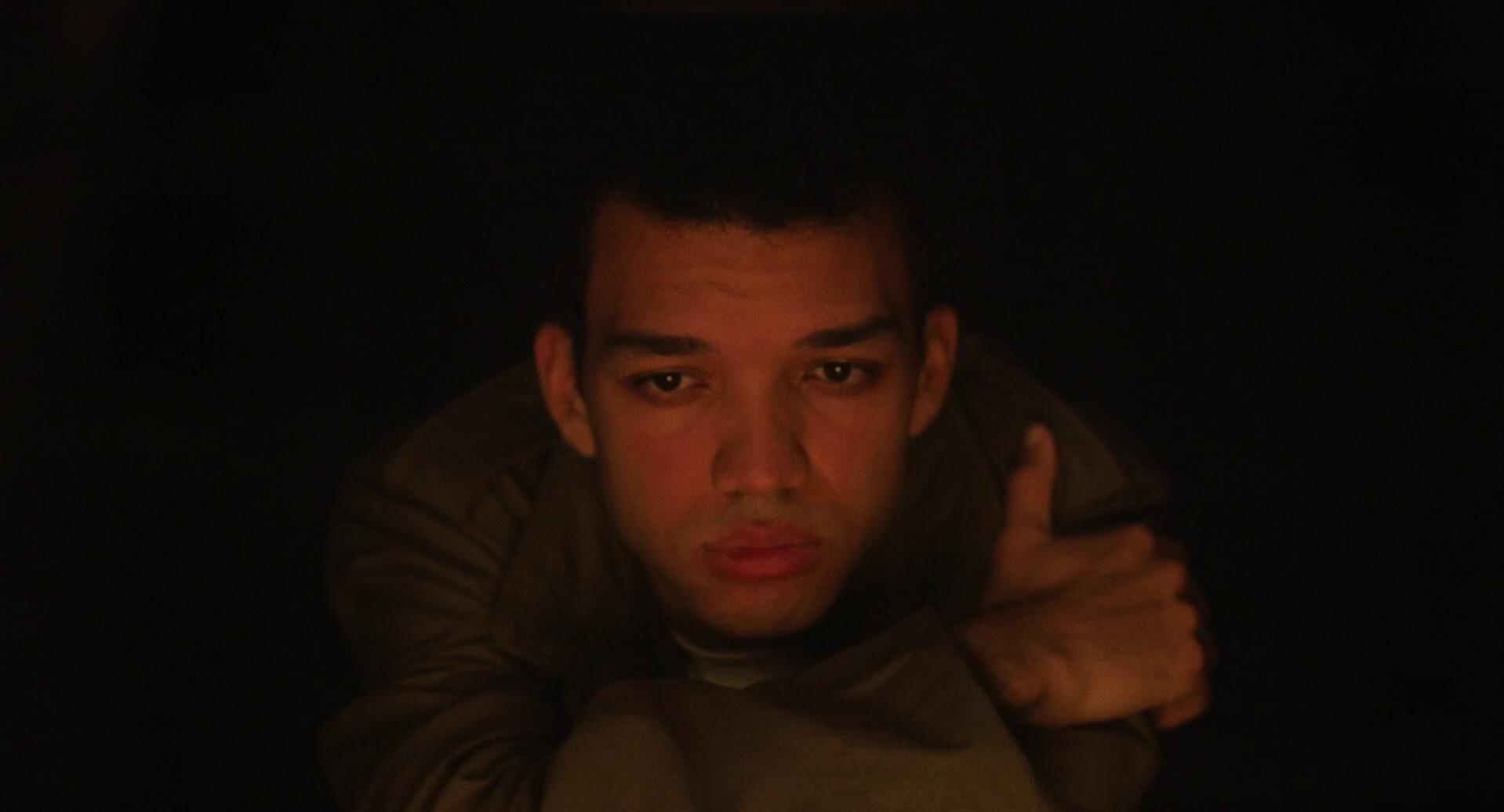
In high school, I wore skinny jeans and crossed my legs. I had a set of glittery binders in bright colors. I was friends with girls and we’d lament how it wasn’t fair that I was a boy and so we couldn’t do all the things other friends could, like have sleepovers. I had long-ish hair, and moved and spoke in ways my classmates considered like a girl.
It was the early 2010s, so of course my sexuality was a frequent topic of discussion. For a time, I thought maybe my classmates had a point, at least partially. There was no doubt in my mind that I liked girls, but maybe I liked boys, too? I considered it, but concluded that I probably didn’t like boys in that way. I was just a little… different.
“Are you gay?” they’d ask with a frown. “No, I’m metrosexual,” I’d explain.
“Glittery binders? What are you, fucking gay?” they’d mock. “Just fruity,” I’d deflect.4
I wasn’t offended at the notion of being gay, but I realized even then that my classmates weren’t really interested in my sexuality. They were trying to determine whether I was worthy of respect; whether I held any value. And so, when I made claims like, “I’m in touch with my feminine side,” I was really making thinly veiled attempts at justifying my existence to my peers.
Even outside of school, I wasn’t exempt from such derision. While out shopping for shoes before the new school year, I wanted to buy pink shoelaces. My father pulled me aside and spat, “Son, are you gay?” The way he spoke the word “gay”—it was as if he had just tasted something foul.

At school, all the boys ever talked about was who and what was gay, and pussy:
“Bro, I think I’m gonna get some pussy this weekend.”
“You know what your problem is, bro? You need some fuckin’ pussy, man.”
“Bro, I fucked so-and-so last night. Her pussy was so tight!”
The crudeness of their talk always disgusted me. To them, women weren’t much different than cold cuts at the deli counter. They might try to write it off as “locker room talk” now, but I saw the truth in their words. I wouldn’t trust any of them alone in a room with a woman. Presumably many of the girls at school also felt this way because very few of the boys frothing about pussy ad nauseam rarely—if ever—“scored,” as they’d put it. I hope for everyone’s sake that they’ve grown up since then, but I have my doubts. Many of them are likely parading about in bright red hats, strapping nine-millimeters to their waists, whinging about men’s rights, and flying flags off the backs of their irresponsibly oversized pick-up trucks with MAGA bumper stickers plastered over their tailgates. You know, the image of peak masculinity.5
I digress, but the crude nature of the boys’ talk always felt somehow personal. The targets of their vulgarity were my friends—my real friends. The ones I related to, the ones I felt comfortable around—the girl-friends. Further, the boys’ coarse remarks carried a not-so-subtle undertone: a full-blown rejection of things like feelings and vulnerability and self-expression—things I was well-acquainted with. Not only was I “gay,” I was also a “pussy.” The only way I could’ve sunk further on the social ladder was if everyone had learned I am Autistic.
I wish I could state that I called out my classmates’ toxicity when it arose, but to do so would be deceitful. I nodded along and acted like it was okay. I laughed at their misogynistic jokes, as if I were one of the boys! In time, I started to act like them.
I regret that now, but I can’t blame myself. I was just trying to fit in. Just trying to survive. As the years passed, and I continued to be told what it meant to be a man—the thing that everyone referred to me as—I grew increasingly confused: Is this what I’m supposed to be? Is this what I am?
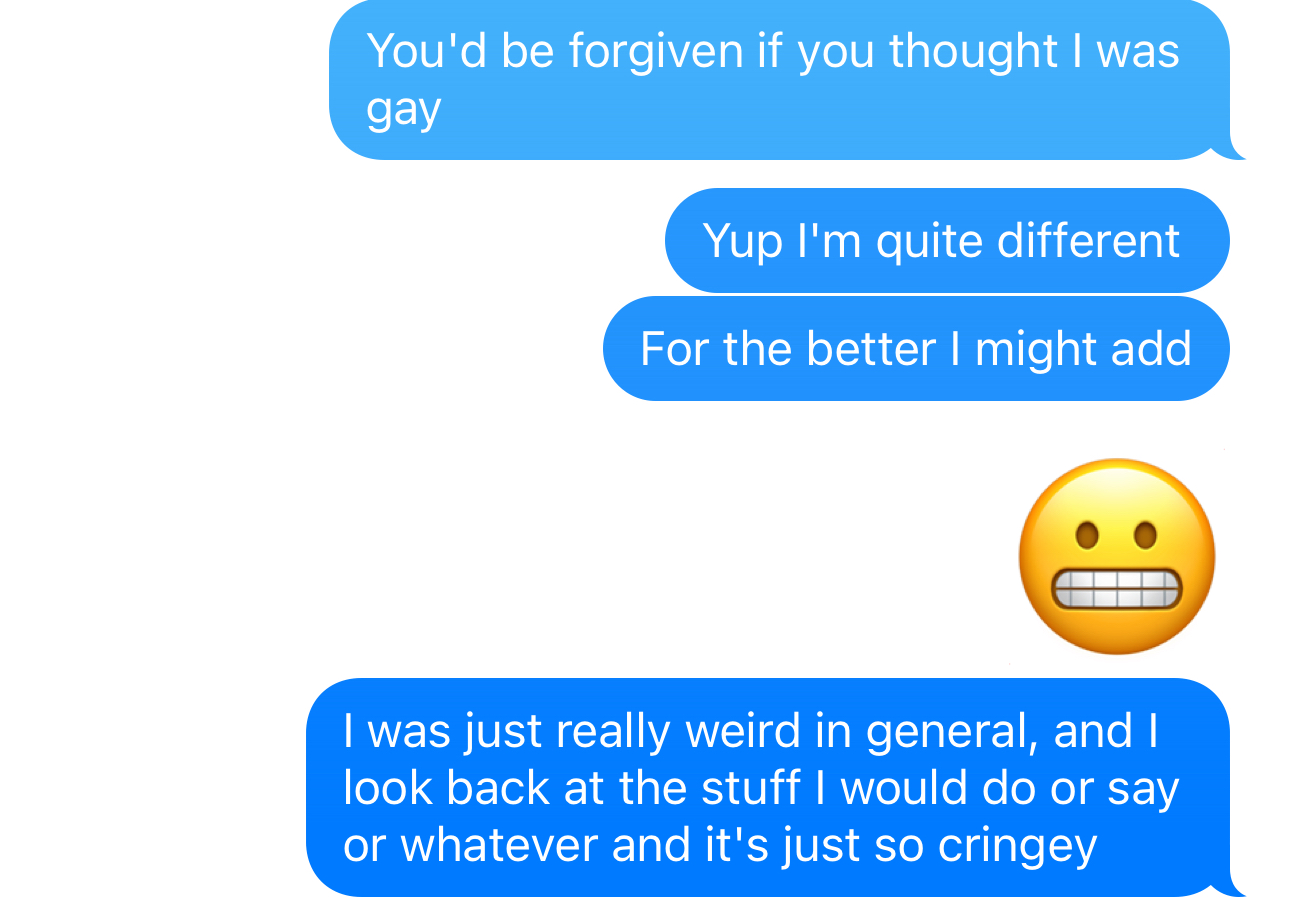
By the time I graduated, I wore straight-cut jeans and lugged around a dull black binder. I cut my hair short and stopped crossing my legs. It was time to grow up, stop fucking around, and act like a man.
Sorry about that before.
Sorry about before.
Sorry.
I’m sorry.
Soft-boiled
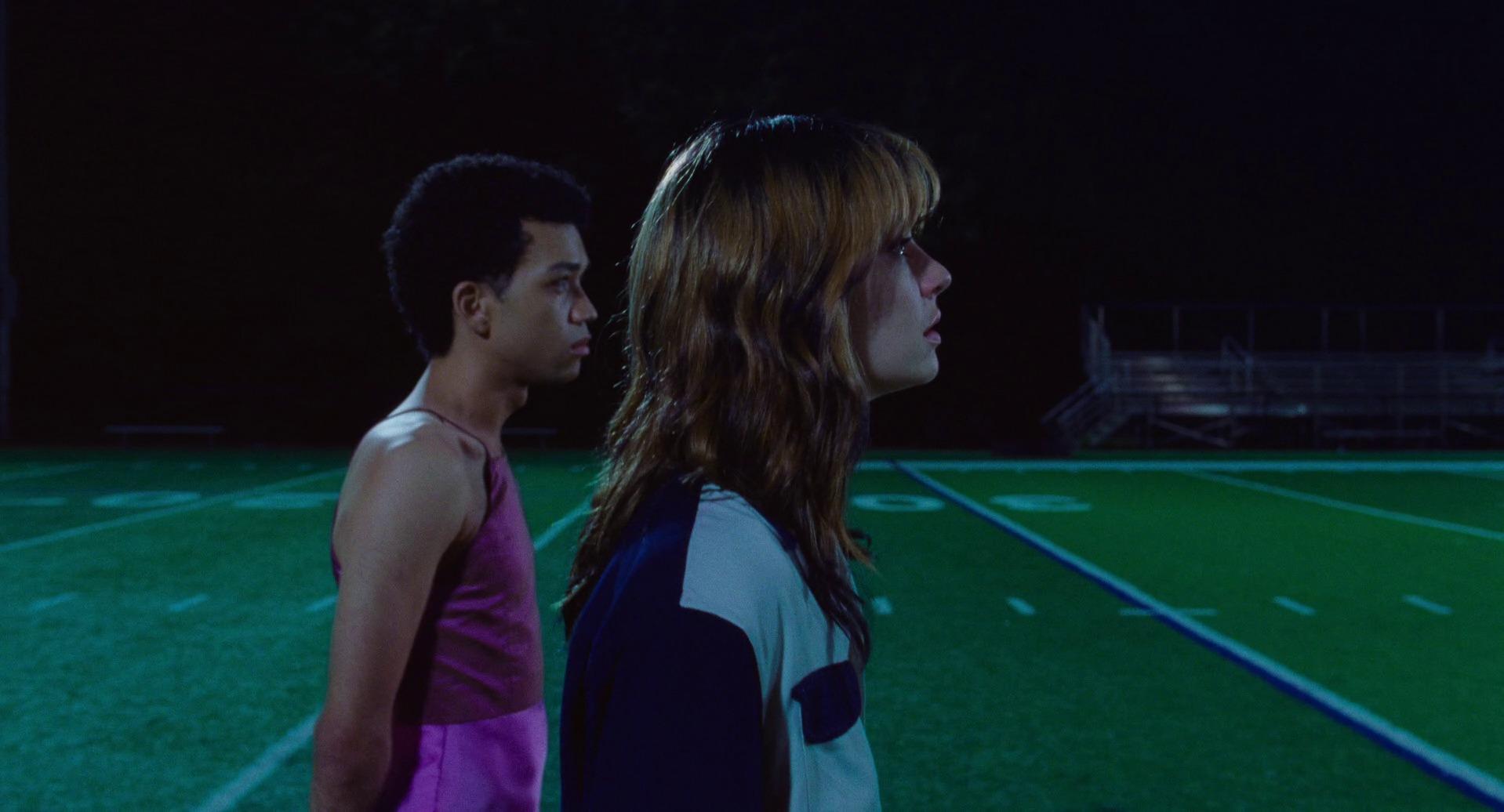
Early in university, I wrote a piece for the student newspaper about how I resented being mocked for liking the color pink, among other things. It opened with the following:
I don’t make a very good man. Before anyone asks, no, I’m not coming out as a woman or anything along those lines.
Oh, the irony…
I wrote a great many things for that newspaper, most of which I do not remember. The things that I do recall writing are the pieces that I was either exceptionally proud of or generated a bit of controversy.6 The aforementioned column fits neither of these categories, however. I remember it only because of the intense shame I felt immediately after sending it off to my editor.
I’m not macho, I don’t have very many guy friends, and I wear my heart on my sleeve. I must be gay or something, right?
I felt embarrassed. I had written the forbidden words. Why the fuck did I write that? I couldn’t enter the newsroom for several weeks afterward, lest I had to look anyone in the eye. That shame stuck with me throughout the rest of my time at university.
At the end of that piece, I wrote:
What I’ve always found rather amusing is we are often told to be ourselves in pop culture. Really, what that means is to be ourselves within the boundaries of acceptable behavior as defined by society. How shameful.
These words are the clear product of repression. I was so close, yet it wouldn’t be until almost a decade later that I would finally put the pieces together.
Act Two: Into the frying pan
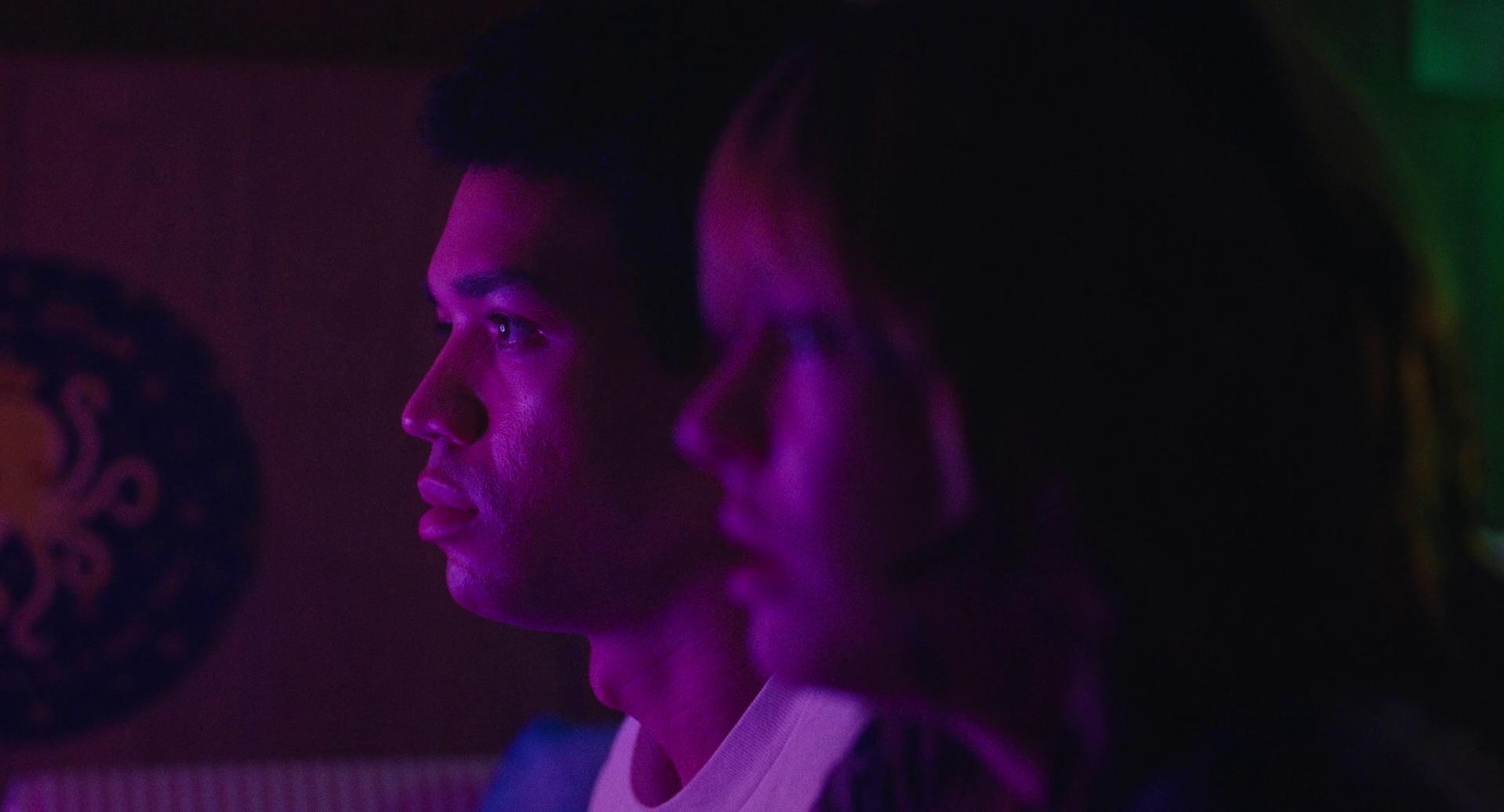
Coming out as Autistic was scary, but at the same time it was something that everyone around me already knew, even if they didn’t realize it. Sage is a little socially awkward, they’d think. Sage is eccentric. And when I did unveil that I am Autistic, it was rather anticlimactic. Ultimately, “Autism” means very little to most people. “You’re Autistic? Alright,” they said, shrugging their shoulders.
Coming out as trans is different. People have opinions on what “trans” means. To some, it is merely a term that refers to those whose assigned gender does not match their identity; to others, it is a term indicative of identity and a greater community; to others still, it is a term that refers to predators. Trans hate is so prevalent at the moment that it is a prominent feature of the current U.S. administration.
It’s a less-than-ideal time to be doing this, to put it lightly. This is certainly not the sort of atmosphere anyone wants to come out in, but it’s the one I’ve got. I’m not scared of being trans, but I am scared of what it means within the culture we currently find ourselves in.
I’m fearful of the kind of repercussions words like these could bring in the coming years, let alone in the current moment. I’m afraid that visiting my family in Texas is no longer safe for me—if I even have a family to visit, once I divulge all of this to them.
It’s scary, but I can’t deny that the purple-pink girlypop glow of “The Pink Opaque” calls to me. Once one has the realization of who they really are—that “egg crack” moment—it marks a point of no return. What was once a confusing whirlwind of emotions becomes an undeniable picture of one’s true identity, and one can either obey its call or wither away like Owen. There’s hardly a choice to be made.
I already knew the truth of my identity long before I ever sat down to watch I Saw the TV Glow. I’ve known for a very long time that something was wrong—the way I’ve been living is wrong. I thought I’d found the explanation for those feelings last year in Autism, but it turned out that was only half of the answer. The other half I had known for most of my life, but had chosen to ignore it.
I told myself,
“This isn’t normal. This isn’t normal.”
This isn’t how life is supposed to be.
I knew the truth in high school, but it was beaten out of me. I swore to forget these feelings. I told myself it was just a phase. I’m a man! I was just confused.
As I entered adulthood, I watched as my physical features grew more and more masculine. As I peered into the mirror every morning, I began to focus on the microscale: on my scalp as I did my hair, on my cheek as I shaved it—never taking in my whole self, for to do so would be to confront the dysphoria at the thing that stared back at me in the mirror.
That dysphoria was a strange experience. I would go weeks, even months, without ever looking at myself properly in the mirror, until one day I would let my guard down and accidentally see myself in full. It was always genuinely shocking. Who the fuck is that?

In my mind, when I imagined myself in certain situations—say, in a relationship—I pictured myself as a woman. For years, I never even realized this. I just did it without thinking.
I’ve always felt a disconnect within myself. My mind and body have never been one; they have always been two separate entities. I give commands to this meat-sack that others view as “Sage,” but this awkward, ugly flesh isn’t me. I don’t know what or whose it is, but it isn’t me or mine.
Nonetheless, I’ve chosen for years on end to push these feelings aside. I’ve told myself that everyone feels this way, and in a sense, everyone does feel this way—even the most beautiful of us struggle with self-image. But this goes further than that. This is something more, and I’ve known that for a long time, but I swore to myself that it wasn’t true.
Maddy’s story was insane.
It couldn’t be true.
But some nights … I found myself wondering:
What if she was right?
What if she had been telling the truth?
What if I really was someone else?
Someone beautiful and powerful.
Someone buried alive and suffocating to death.
Eventually, I admitted to a therapist that if I could press a button and immediately become a woman, I’d do so without hesitation. “But that’s just hypothetical,” I hand-waved. “I wouldn’t ever want to actually transition!”
That’s just fantasy.
Kid’s stuff.
Yet, the evidence stacked higher and higher. As I researched my neurodivergence and discovered a higher proportion of transgender people among the Autistic population, I told myself I wasn’t a part of those statistics. When I caught myself staring at women, I told myself it was merely out of lust—I didn’t want to be them! When I felt things stirring deep inside of me whenever other queer people would share their experiences, I told myself I was being too empathetic. I told myself I wasn’t trans.
You’re a man.
You’re a man.
Be a fucking man!
But the heart wants what the heart wants. Despite my best efforts at repressing these feelings, they refuse to be silenced. Sometimes my hair falls into place, my skin glows, the light bounces off my lips just right, and for a brief moment I’m able to look at myself—my whole self—and feel as if I am approaching “pretty.” As I type this, I look down at the keyboard to see my painted nails, their gloss reflecting the fluorescent lights above, and the euphoria they spur is undeniable.
You’re not a man.
You’re not a man.
You’re not a fucking man!
I’ve been running from myself for my entire life. Maddy forced me to confront who I really am, and realize that I’m sick of running. I can’t do it anymore. I won’t.
I knew I needed to come back and save you.
So that the show can continue.
So that we can get to season six.
Act Three: Rebirth
New hemisphere, new me

Japan represented a fresh start: I was moving to a new country on the other side of the world in which no one knew who I was. It was the perfect opportunity to change my name.
Thus, Sage was born. And with their birth came a newfound sense of self: Sage offered me full permission to be whomever I wanted, without the weight of others’ expectations. Years of people pleasing had left me as a shell of a person. I had no identity; I didn’t really exist. I was merely whomever everyone else wanted me to be. Whomever they told me to be. Obedient and without agency. Sage lifted me from those tired shackles and dared me to be an actual person. You deserve a voice. You are allowed to exist.
A couple of years later, they dared me to push further: I moved away from overtly masculine-leaning attire. I grew my hair out longer than I had ever done before. It felt right.
I painted my nails. I had always wanted to do so, but I was too fearful of other’s reactions. However, when I finally decided to go for it, it felt so right—as if it were always supposed to be this way.
In the wake of that euphoria, it became clear that it was time to fully embrace my trans self. I found a clinic that offered HRT and scheduled an appointment.7
It was time to leave the Midnight Realm once and for all.
The magic potion, the slaying of a great beast, and the Burger Council
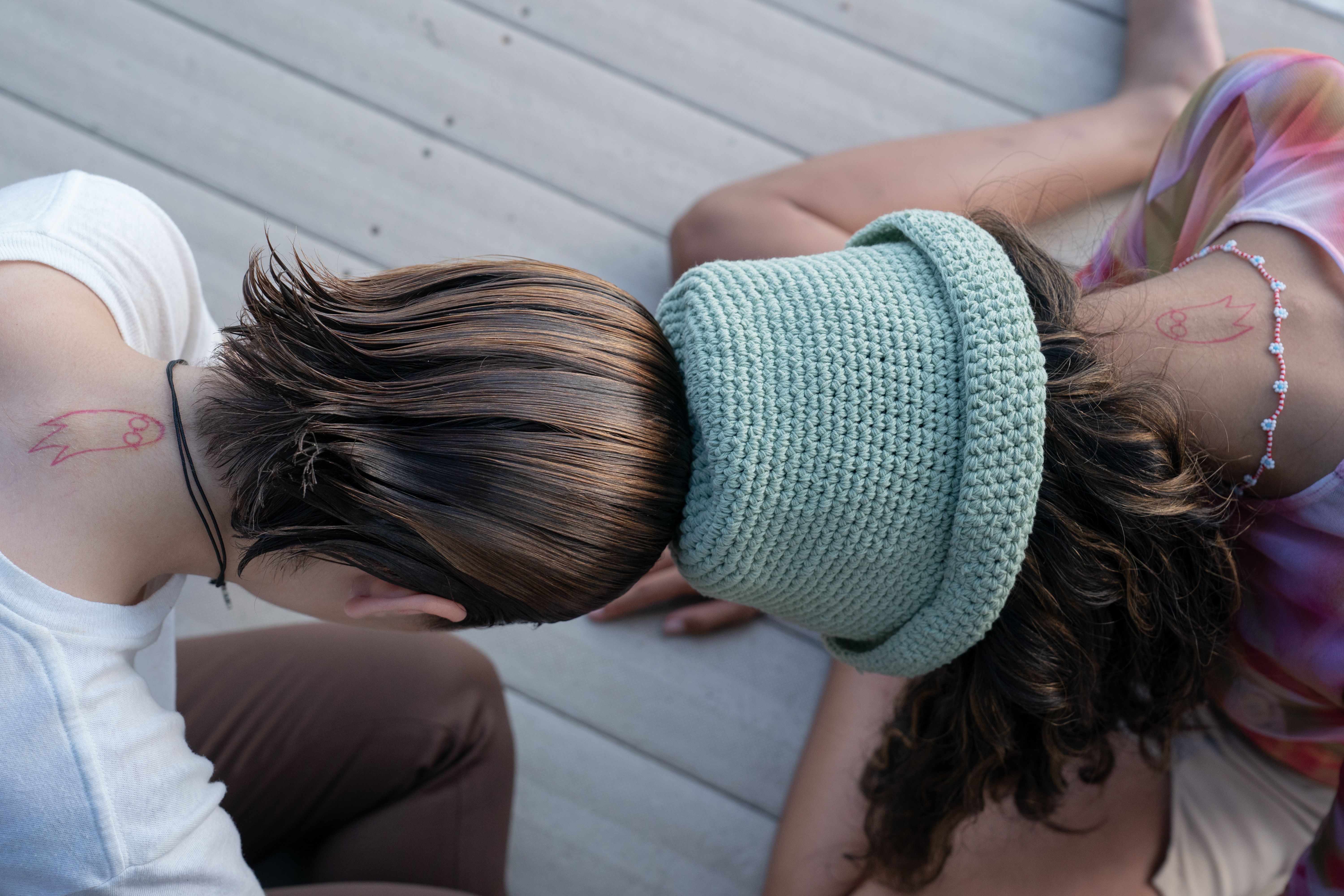
The elevator doors opened and I was spit out into a small carpeted space with shoes lined up along the walls. I removed my shoes, changed into a pair of slippers, and entered the clinic’s lobby. It was quiet and inviting, with wooden floors and wall paneling. Plants were stationed in the corners of the room and the waiting area featured private cubicle-like seating.
I approached the front desk and informed the receptionist that I had an appointment. They nodded and motioned for me to sit. I found a seat with a window overlooking the street below, and watched pedestrians saunter by: masculine, feminine, androgynous; tall, short; thin, wide; Japanese, foreign; short-haired, long-haired; young, old. All these people living their lives, while I’m about to start a new one…
A door cracked open behind me and a man’s face popped out from behind it. “Sage-san,” it called. “Hai,” I replied. The face disappeared and I entered the room after it. I was expecting a formal examination room, but evidently this was the doctor’s personal office. To the left, a large desk sat against a window and atop it laid a mess of books, binders, papers, and computer screens. Behind the desk lurked a copy machine, and on the far wall stood shelves with yet more books and binders. It was all rather chaotic, but there seemed to be a method to the madness.
The doctor was seated at the desk, dressed in casual wear. I planted myself on a stool in front of him. Without looking up from the computer screens, he asked, “So, you’re here for female hormones, correct?”
“Yes, that’s right.”
“Can you tell me why?”
I gave my reasoning and he rapped away on a keyboard.
“Is this your first time with hormone therapy?” he asked.
I nodded.
“I see here that you live in another prefecture, so you can’t come in every week for your injection. Are you okay with self-injection?”
“Yes, that’s totally fine.”
“Okay, today I will show you how to do the injection,” he said. “I will also send you video instructions, so please refer to them for your injection next week.”
He left the room and returned a moment later with a small, clear-plastic package in hand. Opening it, he laid its contents out on the desk: a glass vial, a syringe, a pair of needles, an alcoholic wipe, and a bandage. My heart started pounding. This is it.
The doctor raised the vial in the air, like it were a precious gemstone. A clear, viscous liquid rested inside. “This is estrogen,” he stated.
For a moment, I thought I saw the glass shine and glimmer, like in a cartoon. Ding!
I observed the doctor attach a long needle to the syringe and fill its chamber with the vial’s fluid. Then, he swapped to a short needle and instructed me to expose my stomach. “You inject about two fingers’ width away from your belly button,” he explained. “Ready?”
It was time. I was seconds away from receiving my first dose of estrogen, thereby starting my transition in full. After this, nothing would be quite the same.
Despite having the option to do everything online, I had come two hours away because I wanted to give this moment the appropriate weight it commanded in my mind. Yet, I didn’t feel elated as I had imagined I would. Instead, my stomach twisted into knots. My heart beat even faster and my breathing hastened. Am I sure about this?
Of course, I was sure about it. There was no doubt in my mind that I wanted the stuff in that syringe, but in that moment I was faced with the sudden realization that all of this—being trans—was no longer limited to the confines of my mind. I couldn’t hide these things anymore. It wasn’t fantasy. It was real, and it was happening right now. While that was incredibly exciting, it also meant that soon I would be faced with the negatives of being visibly trans. It was bittersweet.
I felt a slight prick and watched as the needle sank into my skin.
“Does it hurt?”
I shook my head. “No.”
“It takes some time to inject because of the thick oils.”
I watched as the syringe’s plunger creeped closer to my stomach. Slowly, slowly…
A few seconds later, the syringe was removed and a bandage was placed over the injection site. I was given a few more doses of estrogen to take home and then it was over. The appointment took all of 10 minutes. It was the easiest doctor’s appointment of my life.
It almost felt too easy. It didn’t feel like a big deal at all. It felt mundane. Routine. Unremarkable. Normal.

As I left the clinic, I considered whether I felt any different. I could feel a very slight soreness around the area of the injection, but otherwise I felt exactly as I did just 30 minutes prior. I knew HRT operated on a timescale of months and years, not hours—and certainly not minutes—but I couldn’t help but feel a little disappointed.
The slurry of emotions was confusing and exhausting. Excited, yet scared. Hopeful, yet disappointed. It also happened to be a little after noon, and I hadn’t eaten breakfast that morning. The next course of action was obvious: eat through those feelings.
I marched to a nearby Shake Shack and paid an excessive amount of money for a cheeseburger. It was massive: two soft buns embracing a fat beef patty topped with cheese, lettuce, tomato, “shack sauce,” and a cheese-wrapped fried mushroom that spanned the width of the burger itself—a true American feast. I lifted the thing and felt its immense weight. A mixture of sauce and grease oozed from its backside onto the tray below. I stared at the great beast in my hands for a moment, admiring its splendor; then shifted my gaze toward the black polish on my nails, gleaming under the fluorescent lights above.
There I was about to stuff my face like I was back in America. I had changed a lot, and I was going to change a whole lot more, but I was still me. If anything, I was more me than I’d ever been before.
And I was me.
I was finally me again.
And it was the season six premiere.
Autistic and now trans—I never expected these to be the defining traits of my time living abroad. Yet, it had all led me here: to an overpriced (yet delicious) burger shop on the opposite side of the globe on which I had spent 90% of my life. Despite everything, I had found my way to one of my oldest guilty pleasures: a disgusting, beautiful burger.
I took a bite, struggling to fit the towering mass in my mouth. Sauce ran down my chin and onto the metal serving tray below, and a medley of umami erupted in my mouth. Oh my god.
Ere long, the beast was slain. Nothing remained of it except for a puddle of melted cheese and the grease on my fingers. I sat there in the middle of the restaurant, basking in the afterglow of having conquered the thing.
While I had indulged in greasy food plenty of times in America, the context had always been different. Then, it was a semi-hostile act; an attempt to get “revenge” on the body that I despised. Today was different. The act was the same, but it had shed its malicious undertones.
As I pondered this, a council of disembodied voices gathered in my mind.
“Oh, god. Why did we do that?” a shrill voice cried out.
A velvety purr replied, “It was necessary.”
“Yes, yes!” a reptilian hiss exclaimed. “Necessary! That’s it!”
“Necessary?” scoffed the first voice. “We feel terrible. Horribly bloated! Why would we ruin such a momentous occasion with an act of self-harm such as this?!”
The purr let out a long sigh. “That’s the point! To prove we can still do this.”
“Do what?” the shrill voice shrieked. “What could we possibly have proven by devouring that… abomination?”
The hiss cackled. “That we could! That our appetite is large enough! That we’re good Ameri-”
“No, you dolt!” spat the purr, its voice cracking. “Yesterday, we dined as a man.
“Today, we dined as a woman.”
Next time on “The Pink Opaque”

When I imagined transitioning, I pictured bold declarations and sudden results.
One day, I wake up and shout, “I’m a woman!” I adopt a new name, start dressing and speaking differently, and I feel all the euphoria. Everyone around me immediately adopts my pronouns. Orchestral music erupts in the streets and depression hurriedly retreats. In a single moment, everything changes.
That was a nice fantasy, but of course it wasn’t realistic. In reality, transition is a slow, awkward, and at times painful process.
In some respects, my dysphoria has actually worsened since starting estrogen. Now, I look at myself fully in the mirror every day, on alert for any visible changes. I take a selfie each morning to document my progress and while I’m sure one day I will be glad I did so, this is often a truly torturous task.
I’ve encountered varying degrees of acceptance toward my name and pronouns. It feels great when someone gets them right, and terrible when they don’t.
Currently, my (deep) voice isn’t a major source of dysphoria because it matches the face in the mirror. However, I know there will come a time when that is no longer the case, and it would be ideal to start preparing for that now rather than later. I’ve started dabbling in voice training—yes, I realize “dabbling” isn’t going to cut it—but it is so daunting. Sitting in my apartment doing voice exercises, working on things like pitch and resonance and vocal weight—I know it’s all part of the process, but I feel dumb doing it. Perhaps voice training is more a test of mental fortitude than anything else.
While it’s all a bit awkward and I’d really like for the estrogen to hurry up already, my transition thus far has been overwhelmingly positive. It’s one of the best things that’s ever happened to me, if not the best thing that’s ever happened to me.
I expected estrogen to improve my mental health in a roundabout way. I thought as it altered me to be more in-line with who I envision myself as, my mental health would improve as a result. That’s probably true. However, my mental state did a 180 literally overnight after receiving my first injection. At first, I thought this was simply a result of the knowledge of having started HRT, something I was really excited about. But over a month in, the “novelty” of having started estrogen has waned and I still feel fantastic. It’s not that I’m constantly happy—a certain orange man has seen to it that I’m not—but I’m stable. I can think and process negative thoughts and feelings (like the kind from rumination, then move on with my day—something I’ve never been able to do. Before estrogen, all it took was one little thing and I would spiral for the rest of the day. No more!
It certainly isn’t visually apparent yet, but I can confirm things are happening in my chest. I noticed toward the end of my second week on estrogen that my chest had become sensitive to touch, which happened far sooner than I ever expected. Any irrational fears I had that I might be immune to estrogen or that I had been given placebo injections were quickly put to rest.
There’s still so much to do. I want to buy new clothes, get my ears pierced, and learn makeup. I also want to legally change my name, although I’m not sure how feasible that is at the moment. Regardless, I can only do so much at a time—capitalism demands its dues, after all.
Transition is a marathon, not a sprint. I remind myself of this while I do my best to simply enjoy the process, instead of focusing solely on the end-goal. I’ll get there eventually, but in the meantime it is enough that I’m seeing actual, tangible results. I’m on the right track.
When I chose a university nine hours away from home, it didn’t lead to happiness like I’d hoped. When I left the country entirely, it also failed to provide the happiness I longed for. Even as I discovered I’m Autistic, for all the good it did and continues to do, I still wasn’t happy.
In embracing my true-self, am I finally happy? I don’t know. I still frequently begin my days ruminating. I still have an array of familial issues. I still grapple with low self-esteem. The problems I had pre-transition are still intact.
And yet, the future has never been brighter. I look forward to tomorrow—an experience I’m wholly unaccustomed to.
Transitioning did not solve all my problems. Transitioning gave me problems that I consider more interesting, and it made them feel worth solving.
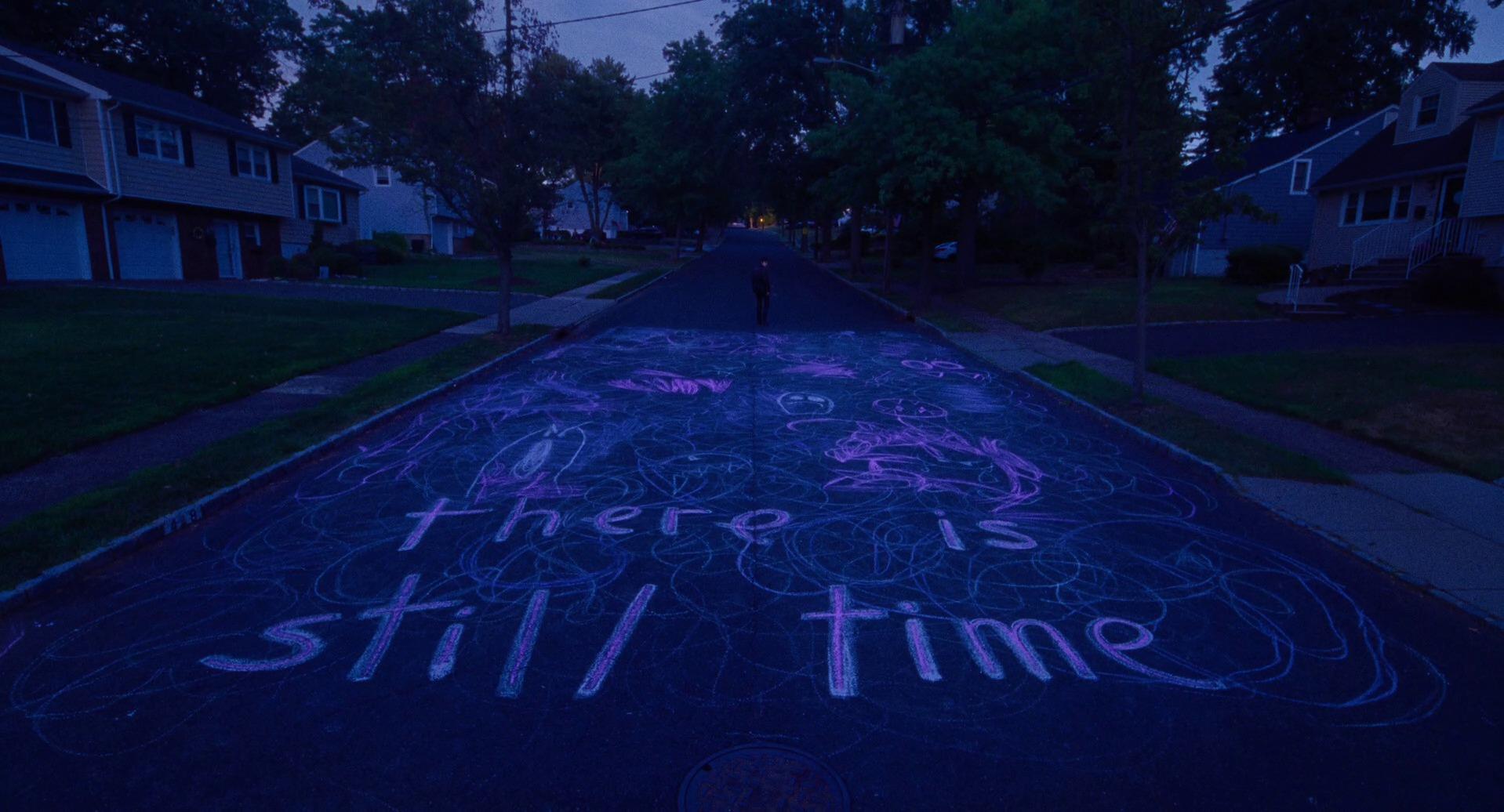
Addendum (because this post isn’t self-indulgent enough)
This month marks one year of catloaf & coffee. A year ago, I began processing my Autism diagnosis through the writing I do here. My first post was actually just a private journal entry. I made some changes to accommodate its publication, but 90% of it remains as it was when I wrote it in my journal.
Since then, I no longer keep a journal. I have no need to do so, as this blog has effectively replaced it. It’s an interesting experience writing some of one’s most personal thoughts for the world to see. While not many people actually read the things I write here—honestly, good—there’s always the possibility that anyone could read the things I write, which creates a strange dynamic. Should certain individuals stumble upon this blog, there are some rather awkward situations that could arise. Avert your eyes!
Thinking back on that first post: at the time, it felt so daring. So bold. So… risky.
In hindsight, that seems silly. Trivial. Announcing I’m Autistic felt like the biggest thing in the world, but now it’s just a basic fact of life. Yes, I’m Autistic. So what?
A year later, and I’m coming out as trans. Once again, this feels daring and bold and risky. However, I’m not so sure that I will find these feelings trivial a year from now. As a trans person, I am detested by many in my home country, among other places. It is risky to come out as trans; I fully expect some not-insignificant fallout involving some family members after I come out to them, for instance.
Maybe it’ll make for a decent blog post, at least.
To date, this post has been the hardest piece for me to write. Not only is it the longest post on catloaf & coffee by a significant margin, but it has also taken the longest amount of time to write. I began this piece back in November and planned for its release in December… which became January… which became February… which became March. Originally, I thought I would include this at the end of January’s post because I was apprehensive at the idea of having a standalone “coming out” post. I thought if I were to hide these words at the bottom of a silly post about music, games, and film, it would be “safe.”
Obviously, that didn’t happen because that would’ve been stupid. This thing only works if I’m honest with myself, and by extension, this blog. While on this site I may simply be a name paired with a set of pronouns, in meat-space the reality is this: I’ve started estrogen. It’s still early days, but in time its changes will become more and more apparent. If I wanted to hide my trans identity, I’m making all the wrong choices.
While I know there’s nothing wrong with being trans, there is still a part of me that feels weird about it. I feel like I’m doing something bad; like at any moment someone is going to burst through the doors and hand me a slip of paper summoning me to the principal’s office. Maybe they’ll call home to my parents! Or maybe I’ll be pulled aside at youth group on Wednesday.
Intellectually, I know these feelings are simply the remnants of misguided ideologies. Still, a part of me feels like a monster; a freak. Not only do I have to grapple with dysphoria, I also have to deal with the warped morality of a belief system I haven’t claimed for well over a decade—its roots run deep—invalidating and making me feel gross for having that dysphoria in the first place.
However, in the time since I began work on this post, I’ve made some headway into silencing that bigoted voice—hence this post standing on its own—but I may never be able to fully shut it up.
For years, I was taught to hate myself and people like me. There’s a lengthy section above detailing Christianity’s place in my story, and believe me, I could’ve written a hell (get it?) of a lot more. But ultimately, I don’t want to engage in fruitless hate-mongering, lest I stoop to the level of the very people I’m criticizing. However, I feel some clarification is needed:
I do not hate Christians. Believe what one will. I don’t presume that we found the truth of the universe a couple thousand years ago, but honestly, no one really knows anything. We’re all just blind fools making our best guesses at The Truth. I recognize that there are Christians that genuinely do practice acceptance and forgiveness, which is brilliant. With them, I have no quarrel. Having said that, I will never respect those that hide behind religious convictions to justify their pathetic bigotry and hatred—something we’re seeing quite a lot of at the moment. To those such individuals and their closely-held Nazi brethren: from the bottom of my heart, fuck you. History will not look kindly upon you.
With that, I think I’ve rambled for long enough. There will be plenty of time in the future for further musings on being trans or Autistic or whatever else.
Here’s to new beginnings.
Sage 🌿
they/them (for now) she/they
🏳️⚧️
Acknowledgments
There’s a host of great resources out there for trans folk and those questioning, but it’s becoming increasingly difficult to find them. Below are some sites and creators that have helped me in my transition.
-
The Gender Dysphoria Bible: A brilliant deep-dive into the many types of dysphoria and the process of medically transitioning. This is a great resource even for those just seeking to learn more about trans people and our experiences.
-
ICKY: Icky’s YouTube videos and TikToks have been instrumental in my education on trans-related topics. She also has a great guide on HRT!
-
Lila: I love this woman. Lila’s positivity is infectious. It’s a challenge to watch her TikToks and not smile. In moments when I felt like transitioning was an insurmountable hurdle, her optimism gave me the strength I needed to push forward.
-
r/egg_irl: There are many subreddits with great LGBTQ+ communities, but this one in particular helped me come to terms with my identity.
-
TransVoiceLessons: Look, I’m going to do my voice training eventually. When I do, I’ll be using Zheanna Erose’s lessons. They are very well-structured and easy-to-follow, even for someone who has zero knowledge of what things like “resonance” are.
-
Erin In The Morning: Erin and her team do fantastic work covering trans topics. Their work is absolutely vital in the current moment. I’ve especially appreciated Erin’s breakdowns of Trump’s executive orders and her Trans Risk Assessment Map.
-
HRT Cafe: For those that need to start HRT but cannot do so due to various laws or restrictions, this site can help.
I’d like to extend a big thank-you to the clinic providing my HRT. I won’t link it here for privacy reasons, but it offered the easiest, most comfortable medical experience I’ve ever had. It was incredibly neurodivergent-friendly: The processes were laid-out clearly, and my (many) questions were answered with grace and without judgment. Notably, I never felt like I had to “prove” I am trans. I said I was trans and that was that—just as it should be.
Last but certainly not least, a very special thank-you to Jane Schoenbrun, Justice Smith, Jack Haven, and everyone else involved in the creation of I Saw the TV Glow. Your wonderful, beautiful film not only changed my life, but very likely saved it. 🩷
-
Unless otherwise stated, all quotes in this piece are from I Saw the TV Glow. ↩
-
“For the wages of sin is death…” Romans 6:23 (NIV) ↩
-
Romans 3:23 (NIV) ↩
-
I’m not sure why I thought referring to myself as “fruity” would defuse the situation. (Autistic naïvety, perhaps?) It just led to further ridicule, naturally. ↩
-
Of course, not all the boys were toxic. Far from it, but those that were spoke the loudest. They set the tone for the rest of us. ↩
-
I once criticized my university’s mathematics program. It didn’t like that very much. ↩
-
HRT: hormone replacement therapy ↩
